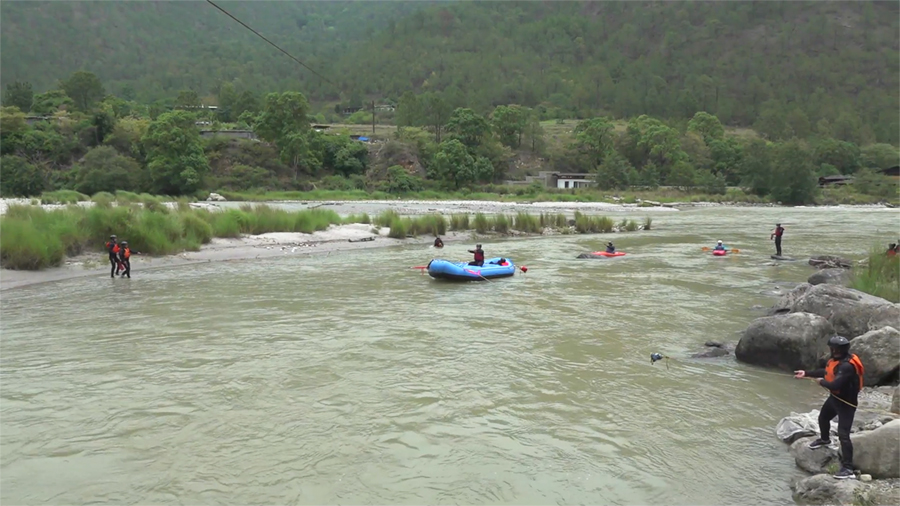
In preparation for disaster rescue efforts involving water rescue, 19 police personnel completed a 16-day training for trainers on basic swift water rescue in Punakha yesterday. The Department of Local Governance and Disaster Management organised the training, expecting improvement in the professionalism of river rescue activities in the country.
Some of the participants in the training have basic swimming abilities while others are new to swimming.
They were taught that to rescue others, they need to ensure their own safety first. The trainees were also instructed on river features and how to manage them.
The police personnel also learned kayaking, rafting, and related activities to conduct river rescue missions.
The Department Local Governance and Disaster Management said that without trained professionals, managing actual disasters becomes challenging.
Choki Tashi, the deputy chief programme officer of the Department of Local Governance Disaster Management said, “In the past, it was challenging because we did not have professionals. We could not carry out rescues on time, and for non-trained people, rescues were riskier.”
The five trainers guiding the trainees hold international certification in river rescue.
Thinley Namgay of Explore Bhutan Rafting and Kayaking who is one of trainers said, “As for swift water rescue, it is something they can do. I have provided them with basic training and refresher courses to the same trainees before.”
The trainees shared confidence in their ability to carry out swift river rescues when needed.
Drimpon Karma Wangdi of the Special Reserve Police Force at Tashigatshel in Chhukha said, “We gained a lot of knowledge. For instance, we learned how to swim, how to handle fast-moving water, and how to rest in the river if we are tired from swimming.”
Similarly, Peljab Phurba Khandu, of Thimphu’s Fire Division said, “If we apply the skills we learned during the training, we can definitely carry out rescues.”
Gopa Sangay Dorji, of RBP Training Institute at Jigmeling, Sarpang said, “If such disasters occur, we are ready to move into action. That is the knowledge we gained. We learned how to navigate different waters and rescue stranded victims.”
However, the trainees said that they would have benefited more if the training duration had been longer. They added that similar upskilling training is necessary.
The department plans to provide urban search and rescue training by procuring the required equipment in the new financial year.
Similarly, some police instructors have been sent abroad for the same training.
Changa Dorji, Punakha
Edited by Sherub Dorji










